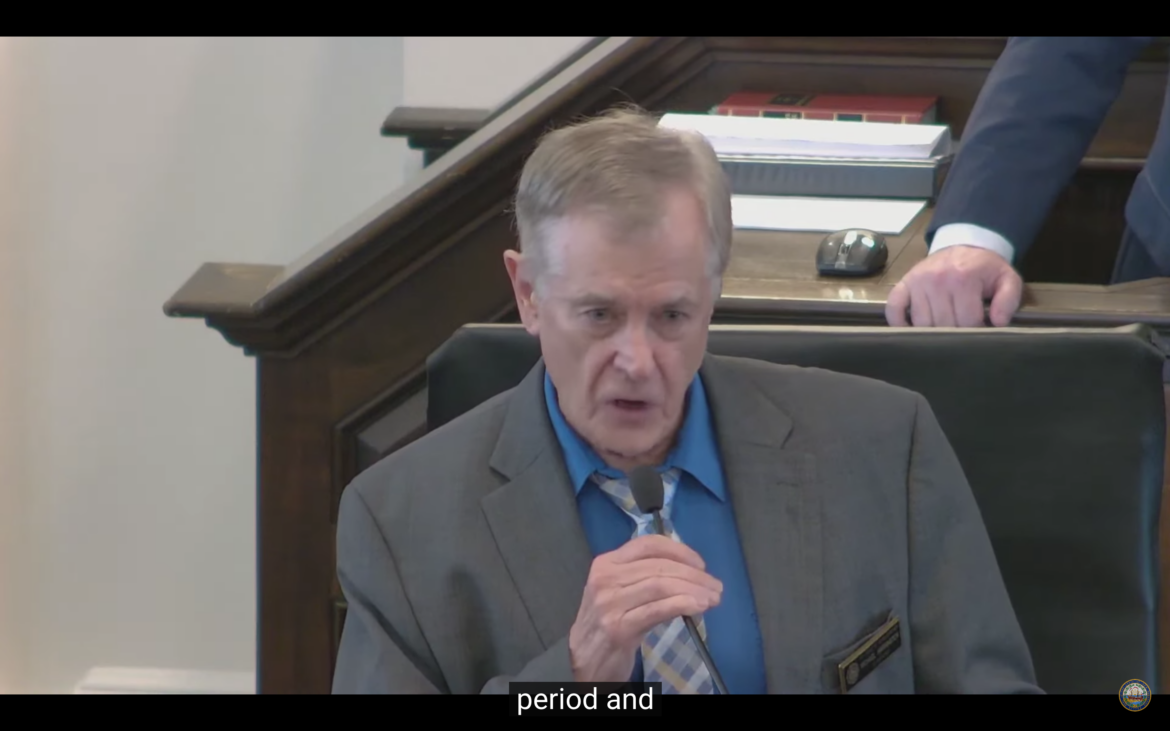By GARRY RAYNO, InDepthNH.org
CONCORD — Without any serious opposition, the House Thursday agreed to the $15.2 billion budget package approved by the Senate the day before.
Several lawmakers touted the bipartisan and bicameral work that produced a budget the House voted 351-25 to concur with the Senate on House Bill 1, or the numbers in the budget, and 326-53 to concur on House Bill 2, the changes in law and policy to align with the numbers.
Although the House has concurred with the Senate budget in the past, it has been more than 20 years. This year, the House also passed its budget proposal on a voice vote, and the Senate approved its proposal on a 24-0 vote.
“I believe we have kind of made history,” said House Speaker Sherman Packard, R-Londonderry.
The $15.2 billion biennium budget takes advantage of near record revenue surpluses envisioned at the end of this fiscal year and the biennium to provide additional money for many areas of state government.
The budget package increases Medicaid provider reimbursements, education funding, a 12 percent pay raise for state employees, additional money for housing, homeless and child care, and additional support for higher education nearing what the two systems received before state funding was slashed in half in the 2012-2013 budget.
However, the budget does not include more than $300 million the House included for the retirement system. Most of the money would have gone to pension benefits for 1,824 Group 2 — law enforcement and firefighters — retirement system employees who were members of the system, but not vested when formulas for determining benefits were changed in 2013.
The “fix” was projected to cost $250 million over the next 10 years and the Senate balked and instead established a commission to study future benefit changes and the overall health of the retirement system which has significant unfunded liability.
The House had also included $50 million to offset some of the liability, but the Senate removed that as well.
Rep. Stephen Pearson, R-Derry, a member of the retirement system, objected to the changes claiming there was a great deal of misinformation about restoring the benefits.
It is not a sweetener as the executive branch said, Pearson charged, noting “when you are restoring something that was stolen from us.”
Pearson said New Hampshire was not alone in changing their retirement systems at the time, but was the only state to change the benefits for those who were members.
“This leaves New Hampshire alone. We will still continue to stick our heads in the sands,” Pearson said, “and ignore the massive problem we have in emergency services hiring and retaining people.”
He said with three straight budgets with large surpluses, the legislature has had ample time to fix the problem but has not.
Others were concerned they had little time to read the two bills the Senate approved the day before.
No one has had time to read the bills and no one understands what is in them, said Rep. Michael Harrington, R-Strafford. “This is Concord, not Washington, we actually read bills before we vote for them.”
But Rep. Mary Jane Wallner, D-Concord, and the ranking Democrat on the House Finance Committee, urged her colleagues to concur with the Senate changes.
She said the bills provide the needed rate increase for Medicaid providers, the pay raise for state employees, has the same level of funding for housing as the House with an additional $5 million, more money for public education and a formula similar to the one approved by the House, and $20 million in additional money for roads and bridges for communities.
“I did not get everything I wanted in this budget but it does go a long way to help New Hampshire’s citizens and communities,” Wallner said, noting they will continue to work on areas of disagreement.
“We have learned a lesson,” Wallner said. “Legislation is much stronger when we work together, Democrats and Republicans, House and Senate. We can see policy makers putting forth their best effort.”
The Senate budget is the smallest of the three proposed, as Gov. Chris Sununu’s proposed plan would have spent $15.5 billion in total funds, and the House $15.7 billion.
The House budget projects revenues of $3.13 billion for fiscal year 2024 and $3.14 billion for 2025, while the Senate projects fiscal year 2024 revenue will be $3.19 billion and 2025 will be $3.17 billion.
The budget now goes to the governor who is expected to sign the two-bill package. The new budget goes into effect on July 1.
Child Car Seats
The House approved Senate Bill 118 to require children two years old and younger to be in a rear-facing child seat.
The long controversial provision was called unnecessary with an estimated 96 percent compliance and they claimed it encourages parents to turn their child around after he or she turns two when it is safer to continue in rear-facing seats.
They also said the bill would have may unintended consequences and should be killed.
But supporters said the data is overwhelming that rear-facing seats for children are much safer and better protection in a crash.
They noted the bill has support of many medical organizations and child advocacy groups, many that provide free car seats to those who cannot afford to buy them.
The bill passed on a 193-172 vote and goes back to the Senate due to changes the House made.
The House also tabled two bills, effectively killing them due to House rules.
Senate Bill 132 would have prohibited the state’s cities and towns from adopting sanctuary policies to protect immigrants from federal enforcement.
CACR 9 would have put the requirement that New Hampshire would hold the first primary in the Presidential selection process into the state constitution.
Garry Rayno may be reached at garry.rayno@yahoo.com.






